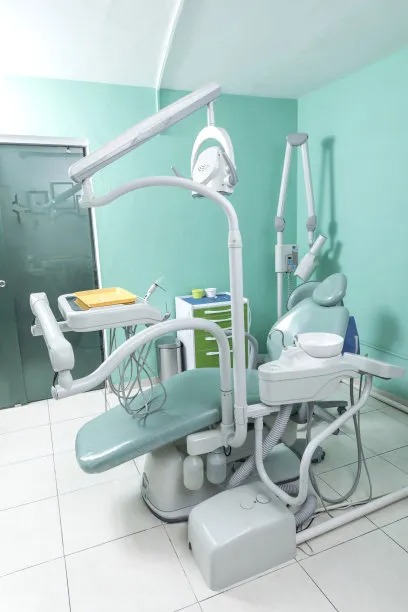Summary: Understanding when and why tooth extraction is necessary is crucial for maintaining optimal oral health. This article delves into the factors that lead to tooth extraction, exploring the significance of dental health, the process of evaluation, the impact on overall health, and the aftercare measures necessary for recovery. It emphasizes that timely extraction can prevent further complications and enhance the quality of life. By examining these aspects, the article aims to equip readers with knowledge that empowers them to make informed decisions regarding their dental care.
1. The Significance of Dental Health Awareness

Maintaining good dental health is vital for overall well-being. Dental issues can lead to systemic problems, including heart disease and diabetes, making it essential to recognize when dental intervention is needed. Awareness about the state of ones teeth can aid in timely decision-making regarding extractions.
One common reason for extraction is severe decay, where the tooth cannot be saved via restorative procedures. The extent of decay and its potential to infect other teeth calls for a careful evaluation by dental professionals. Understanding the implications of decayed teeth can motivate individuals to seek treatment sooner, thus preventing additional dental issues.
Moreover, cultural attitudes towards dental care significantly influence how and when people seek treatment. Educating communities about the importance of timely dental interventions can cultivate healthier practices and reduce the need for extractions in future generations, making dental health awareness crucial.
2. Evaluation and Diagnosis Before Extraction
The process for determining the necessity of a tooth extraction involves comprehensive evaluation methods. Dentists typically perform visual examinations and may use X-rays to assess the root structure and surrounding bone. This evaluation helps them understand the condition of the tooth and surrounding tissue.
Another key component in this diagnosis involves symptomatic assessment, where the dentist considers the patients pain level, any swelling, and the impact of the tooths condition on oral function. Listening to patients’ experiences and grievances is essential to determine the urgency of the extraction.
Additionally, dental professionals consider alternative treatments before deciding on extraction. Options such as root canals or crowns may be explored based on the tooths condition. The decision to extract a tooth is not taken lightly and involves a thorough diagnostic process to ensure its the best course of action.
3. Impact of Tooth Extraction on Overall Health
Tooth extraction can have a significant impact on a persons overall health. After extraction, the body can realign itself to prevent issues that may arise from retaining a problematic tooth. However, it is critical to understand that extraction is not merely about removing a tooth; it’s about preserving one’s overall health.
Many patients find that removing a decayed or infected tooth can alleviate chronic pain and discomfort. This relief can significantly improve their quality of life, allowing them to eat, speak, and smile without hindrance. Patients often report increased confidence and mental well-being post-extraction, highlighting its importance in holistic health.
Moreover, delayed treatment or ignoring the need for extraction can lead to complications such as abscesses or periodontal disease. These conditions have potential repercussions on cardiac health and diabetes, which further underscores the importance of understanding when extraction is necessary for optimal health.
4. Aftercare for Successful Recovery Post-Extraction
After a tooth extraction, proper aftercare is essential for a smooth recovery process. Following the dentists instructions regarding pain management and hygiene is crucial. Patients are often advised to rest for a day or two and avoid strenuous activities to promote healing.
Oral hygiene remains vital even after the extraction. Dentists usually recommend gentle rinsing with warm salt water to keep the extraction site clean and reduce the risk of infection. Understanding these aftercare practices can enhance recovery and prevent complications.
Additionally, monitoring the extraction site for any unusual signs, such as excessive bleeding or swelling, is important. Being proactive about one’s health and reaching out to dental professionals for guidance can ensure a quicker return to normal activities while minimizing post-operative issues.
Summary:
Understanding when and why tooth extraction is necessary is pivotal to maintaining both dental and overall health. By prioritizing timely dental interventions and being well-informed about aftercare, individuals can minimize health risks and enhance their quality of life. Educating oneself about dental health can lead to informed decisions that benefit long-term well-being.
This article is compiled by Vickong Dental and the content is for reference only.
Vickong Dental
Vickong Dental is a large medical group established in Hong Kong in 2008 by professors from well-known medical universities in Guangdong and Hong Kong, as well as medical doctors from key national '985' universities (including Master's supervisors and senior professors). The chain of branches brings together expert dentists with PhDs and Master's degrees from Hong Kong and Mainland China, committed to providing high-quality dental treatment.
"Vickong Dental Practices the University Motto of 'Healing and Serving Society,' with a Stable Operation for Sixteen Years. It Has Been honored with Hong Kong Enterprise Leaders's Choice,' and is a Global Trusted Implant Center for the Nobel Implant System. Recommended by Hong Kong Metro Broadcast and Guangdong Television, it Serves Customers from Over Thirty Countries and Regions, Gaining the Trust and Favor of Citizens from the Guangdong-Hong Kong-Macau Greater Bay Area and Surrounding Cities.

Thousands of customers' unanimous praise
The most recognized and highly recommended dental service by customers in the Guangdong-Hong Kong-Macau Greater Bay Area
We Ensure You Receive Detailed Care and Attention Here
Hong Kong standards, Shenzhen prices, Your Trusted English-speaking dentists

Vickong Dental Medical-Grade Instrument Disinfection Process
Vickong Dental Medical-Grade Instrument Disinfection Process

Vickong Dental Chain: A Warm and Comfortable Environment for Treatment






Appointment Hours

Q&A
Why choose Vickong Dental?
Vickong Dental practices the university motto 「Medicine to Benefit Society」, with each branch bringing together highly qualified dentists with doctoral and master’s degrees from Hong Kong and the Mainland, and has maintained seventeen years of steady operation。Recipient of 「2024 Hong Kong Enterprise Leaders Brand」, 「2025 Hong Kong Enterprise Leaders Brand」, a Nobel Biocare Global Trusted Implant Center, and a brand recommended by Metro Radio Hong Kong and Guangdong TV。
To date, we have served customers from more than thirty countries and regions,earning exceptionally high word-of-mouth recognition and trusted recommendations from residents across the Guangdong-Hong Kong-Macao Greater Bay Area and surrounding cities
We have eight major branches in Zhuhai、Shenzhen,and a consultation and service assurance center in Hong Kong,so you can book a free consultation at any time for any questions,which is very reassuring.
If I do not accept the quotation after the CT scan, will I be charged??
No! As long as the actual treatment has not started, you will not be charged any fees.
Will there be any additional charges during the treatment process?
No, there won’t be any additional charges. Before treatment begins, we will clearly explain the treatment plan and its corresponding fees. Only after the patient agrees and signs the consent form will we proceed with the dental service.
Can I pay in Hong Kong dollars?
Yes. Vickong Dental accepts payment in Hong Kong dollars. The amount will be converted based on the exchange rate of the day, and the applicable rate will be clearly communicated to you in advance.
Can I reschedule my appointment at any time?
Yes. Please contact us via **WeChat** or **WhatsApp** as early as possible, providing your original appointment time and details, along with your preferred new date and time slot for rescheduling.













